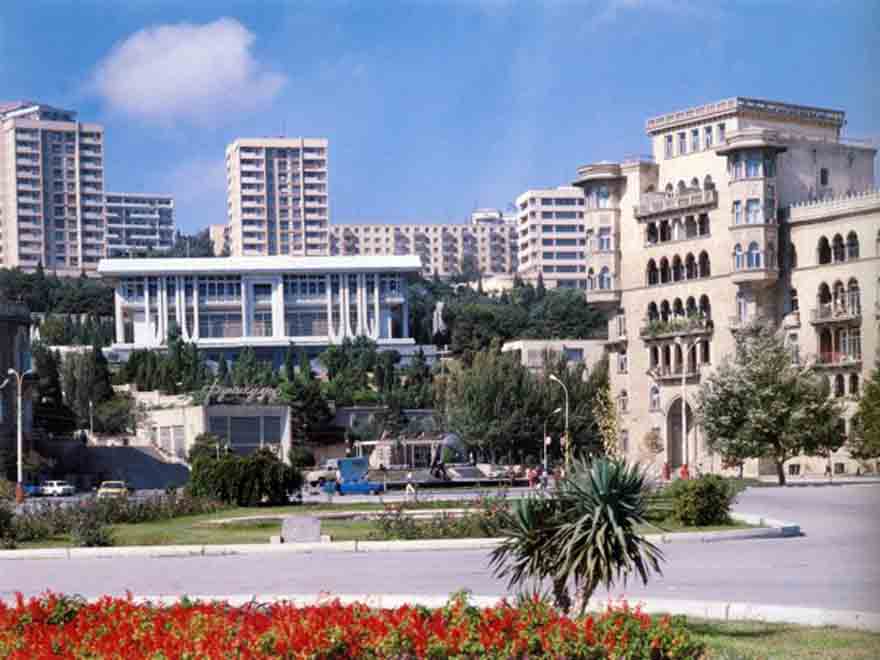Azerbaijan, Baku, Jan. 15 / Trend K. Zarbaliyeva /
"This is the investigative secrecy. The information about this case is not available. If there is necessity, the public will get additional information," press-services of law enforcement agencies answer journalists' questions relating to criminal cases having social relevance.
As a rule, the issue of media's obtaining the information associated with the scandalous criminal incidents in the territory of the Republic, turns into an unsolved problem.
Referring to the investigative, official secret, the law enforcement agencies refuse from providing the media with the information related to such incidents. What is the investigative secrecy? What information belongs to the investigative secrecy? Who determines that the information is the investigative secrecy?
The information deemed to be the investigative secrecy, depends on the specifics of each case, Supreme Court Judge Muzaffar Aghazadeh told Trend on Friday.
"The investigative secrecy in one case can not be a secret in another case. The investigative secrecy is based on subjective opinion. The person conducting the investigation determines the terms of this mystery," the judge said.
Aghazadeh said a practice must be formed to solve the problem in this field between the media and investigative agencies. According to him, after a certain time, this practice will be formed and this problem will be solved.
The investigative secrecy should be kept to conduct the investigation effectively and ensure the rights of participants in criminal proceedings, expert, lawyer, the Media Rights Institute director Human Rashid Hajili told Trend .
The expert also emphasized that the society has the right to receive information having public relevance. This is important.
"The views that information can not be given because it is the investigative secrecy or any information about the criminal case should be given are also incorrect. Both legitimate interests must be ensured and taken into account. The answers should be given to the questions taking into account possible balance," Hajili said.
According to the expert, the law has not exactly determined the terms of the investigative secrecy. The person conducting the investigation, determines whether the information is the investigative secrecy.
Hajili said the law enforcement authorities' disclosure of all information related to a group of criminal incidents, without saving the investigative secrecy and hiding the information about another group of crimes from the public under the guise of investigative secrets are unclear.
"There must be a normal practice in this issue. Defence and law enforcement agencies must disclose the information on the basis of this practice. Moreover, state authorities should be interested in disseminating information related to these criminal cases," Hajili said.
According to the lawyer, as media outlets in developed countries are strong, they do not have similar problems with law enforcement authorities.
"Journalists sometimes have much more information about the criminal case there than the person conducting the investigation. In such cases, the investigating authority, establishing communication with a journalist, tries to negotiate with him about not spreading the information, because it is the investigative secrecy, and bargaining with him. Our journalists do not have such an opportunity. The investigatory body does not react to the information related to the criminal case spread by journalists, " the expert said.
Hajili considers not spreading the information on the extension of the investigation term on a case and preventive punishment of a person accused of this case under the guise of investigative secrecy absurd.
"This information can be considered secret, before a statement on extension of a preventive punishment is given. But if it is made in the court, it is no longer a secret because judicial decisions should be declared openly," the head of the institute said.
There are serious problems in this sphere in Azerbaijan, lawyer Intigam Aliyev told Trend . He said in some cases, the information spread by the investigating body on any criminal case, can cause serious disputes on the basis of dissemination of investigative secrets.
Aliyev said a balance between not spreading the investigative secrecy and the public's right to information is not observed. He said the spokesperson of the investigative body is not entitled to decide whether to give the information on any criminal case or not.
"The person conducting the investigation knows what the investigative secrecy is", the lawyer said.
Aliyev said the information collected by reporters about any criminal case abroad becomes necessary for the investigating body. So, it gets this information from journalists.
"During the investigation we do not use the material collected by journalists. There is no even reaction to the information circulated in the press on this regards. We have no communication between journalists and law enforcement authorities in this sphere," the expert said.
He said non-disclosure of information related to the scandalous criminal cases, serves to conceal the violations during the investigation. "For example, terms of investigation and arrest are prolonged without any reason. This is a violation of participants' rights of the criminal process. Therefore, such information is kept secret, as far as is possible", Aliyev said.
In accordance with the requirements of Article 222 of the Criminal Procedure Code, details of the preliminary investigation can be disclosed prior to the trial on a criminal case only to the extent which do not contradict to the interests of the preliminary investigation and do not violate the rights and legitimate interests of other participants of criminal proceedings. Along with this, the information which is a component of the investigation secret, can be also different depending on the features having important evidence on specific criminal cases of various categories, the Prosecution General Office press-service head Eldar Sultanov told Trend .
"Spreading of the information of the preliminary investigation is possible only by permission of the person conducting this investigation, the prosecutor heading the preliminary investigation by the procedural system, or the court", the representative of the General Prosecutor's Office said.
Eldar Sultanov said the information about the investigation of criminal cases, if necessary, can be brought to the public by the agency conducting the preliminary investigation.






